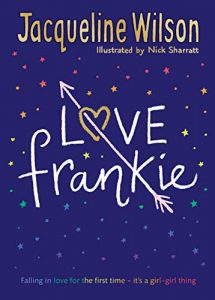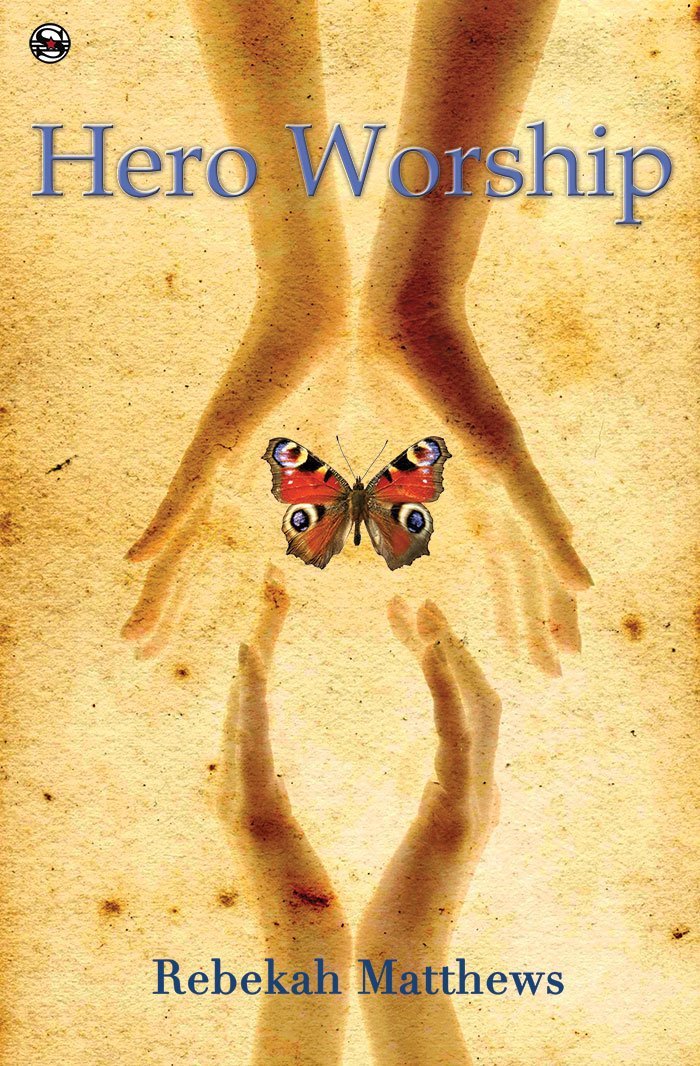Jacqueline Wilson was one of my favourite authors growing up. Something about her battalions of weird, bookish, tomboy protagonists and their intense friendships with other girls really appealed to me.
Looking back on her extensive oeuvre as a fully-realised lesbian adult, I began to see what that connection may have been, and I always wished that Wilson had written an explicitly sapphic character somewhere in her over-100-book career. Then came the news, earlier this year, that not only was Wilson finally going to write a book about two girls falling in love… but that she herself was in a long-term relationship with another woman! I was delighted (to say the least), and couldn’t wait to get my hands on Love Frankie.
When explaining why she hasn’t written a gay protagonist before, Jacqueline Wilson said that she writes about children with problems, and she doesn’t see “any problem whatsoever with being gay”. This is true for Love Frankie, where the protagonist’s sexuality isn’t nearly as big a deal as everything else going on in her life.
Frankie is nearly fourteen, and having a rough time of it. Her mum is chronically ill with MS, finances are tight, she’s worried about her two sisters, and their dad’s no help: he’s left them to live with his new girlfriend. Even her best friend Sammy is a source of stress now he’s decided he wants to be her boyfriend.
Wilson is always strong at writing touching, troubled families. Frankie’s dynamic with her mum and sisters is so warm and true to life. I particularly liked the youngest sister, Rowena, with her obsession for collecting Sylvanian Families – I remember a lot of children like that from my own school years! The issues of illness and divorce are treated sensitively and carefully pitched towards younger readers.
Outside of her fraught home life, Frankie’s being picked on by a group of girls at school. But then their ringleader – the pretty, cool, wealthy Sally – turns out to be not-that-bad-actually and goes from sworn enemy to close friend.
As Jacqueline Wilson novels go, so far, so typical. Then Frankie starts to like Sally as more than a friend.
This central relationship rings true as an account of first love – exciting, intense, giddy, and confusing. However, Sally isn’t particularly likeable as a love interest. She’s hot-and-cold, teasing, and sometimes cruel. I would ask what Frankie sees in her, but who hasn’t had a crush on a popular ‘mean girl’ before?
Although I enjoyed reading this novel as an adult, I know that I would have loved it as a younger teen. I’m so pleased for all the girls who will get to read this at the same age as Frankie and see themselves reflected in the pages.




Kathleen Jowitt says
My pet theory is that Section 28, which was in force for a good chunk of Wilson’s publishing career, stopped her including LGBT characters – after all, a substantial portion of her potential market, school libraries, was forbidden to do anything that might look like ‘promoting homosexuality’ (ick!) I wouldn’t be surprised if she just wasn’t allowed to, back then, and I’m very glad that she is now.